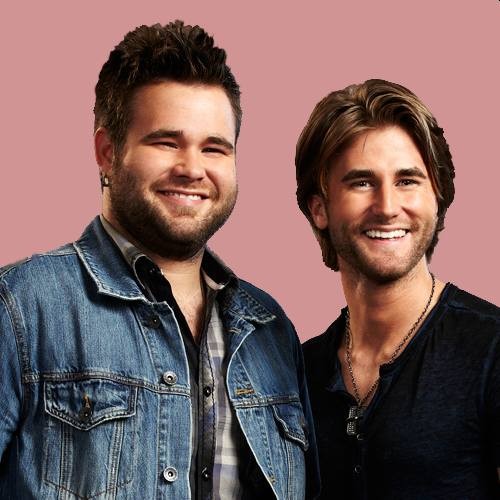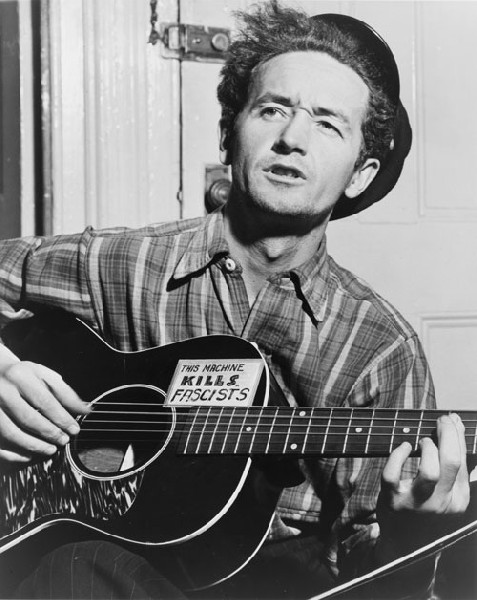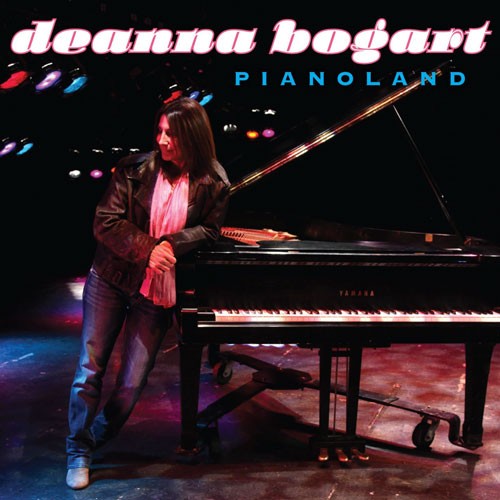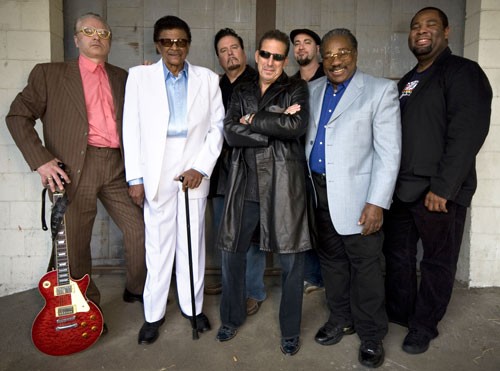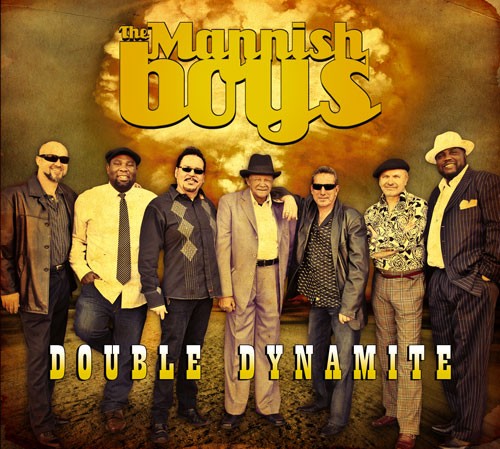Has Anybody But Me Even Noticed - A Rant!
Ear Say- CDs by Deanna Bogart and The Mannish Boys
By: David Wilson - Jun 30, 2013
I have been stewing about this for the last several weeks, waiting for someone to point out what is glaringly obvious to me and offensive to boot. However, it means coming out of one of the several closets I currently inhabit and so I have, until now, resisted.
Time to ‘fess up, I guess, so here goes.
I try to stay current with all of the various major music competition reality shows, often disdained by the cognoscenti, but fascinating to me for several reasons which I may or may not find relevant to note during the following.
In June, in what I prefer to think was a gesture of real empathy with the inhabitants of an Oklahoma devastated by tornadoes, one act on The Voice contrived to perform a tribute song celebrating their unity with those inhabitants.
The act was the talented duo, The Swon Brothers, who along with their show coach, Blake Shelton, claim Oklahoma roots. What surprised and dismayed me was that of all the songs they might have chosen for this celebration of unity they picked the most divisive Oklahoma based song they could possibly choose.
Okie from Muskogee - Lyrics by Merle Haggard
We don't smoke marijuana in Muskogee;
We don't take our trips on LSD
We don't burn our draft cards down on Main Street;
We like livin' right, and bein' free.
I'm proud to be an Okie from Muskogee,
A place where even squares can have a ball
We still wave Old Glory down at the courthouse,
And white lightnin's still the biggest thrill of all
We don't make a party out of lovin';
We like holdin' hands and pitchin' woo;
We don't let our hair grow long and shaggy,
Like the hippies out in San Francisco do.
And I'm proud to be an Okie from Muskogee,
A place where even squares can have a ball.
We still wave Old Glory down at the courthouse,
And white lightnin's still the biggest thrill of all.
Leather boots are still in style for manly footwear;
Beads and Roman sandals won't be seen.
Football's still the roughest thing on campus,
And the kids here still respect the college dean.
We still wave Old Glory down at the courthouse,
In Muskogee, Oklahoma, USA.
When first released, feelings ran very high and a great many “okies,” protestors and resistors to national policy felt slighted, marginalized and betrayed. Considering that OK was also the state that had given us such as Woody Guthrie and Tom Paxton as well the century long resistance of many among the Cheyenne, I thought it was even more offensive.
If in 1969 it contributed to division amongst Oklahoma’s inhabitants, it caused at that time even greater division between OK and a good portion of the dissenting population of the rest of these United States. The Youngbloods came up with an answering release titled Hippie From Olema, the lyrics to which may be found at the preceding link. Note the sly jab at Merle in the last verse.
I do take into consideration that The Swon’s parents, let alone the brothers were unborn when the song was popular, and Shelton at that time was not even a consideration in his parent’s conceptions.
Furthermore, to be fair and quoting Wikipedia, “Critic Kurt Wolff wrote that Haggard always considered what became a redneck anthem to be a spoof, and that today fans — even (some of) the hippies that are derided in the lyrics — have taken a liking to the song and find (some) humor in some of the lyrics.”
In part, I believe, that was because it is so easy to parody or present with ironic and sarcastic asides and in truth I myself find it amusing and in some ways naïve in the present. My contention here is only that it was inappropriate for its presumed intent.
I suppose, since no Oklahomans have come forth in protest, that I have small cause to complain. I couldn’t even get my daughter to whom I tried to spell out all above to see the irony. Still, I cannot help but see it as a callow and callous gesture to proffer a divisive and derisive composition as a celebration of unity.
I suspect that my cynicism about it in part arises from my witnessing at this point the erosion of gains so hard won almost a half century ago and a return to the repressive and restrictive policies of political forces which strive to destroy all dissent. It is a lesson partly learned from another Okie, Woody Guthrie.
I will now step off my soapbox and take note of a couple of cds.
Pianoland
Deanna Bogart
Blindpig Recordings
When I first began listening to this release, I realized I did not have a clue as to how to evaluate it. It featured music which clearly had roots deeply embedded in traditional blues forms, its boogie styled runs throughout, a simple step up from blues and ragtime forms. I doubted, though, that I had enough knowledge of the form to make critical judgments. In such cases, I have learned to just listen without analyzing and pay attention to my feelings.
Deanna Bogart, formerly a member of the group Cowboy Jazz has a rep as a saxophonist of some note though in this release she eschews the sax for the piano. I have not listened much to her sax playing, but I find her talent on the piano to be quite amazing.
As I relistened to song after song I began to realize, that I did not have to know how or what or why she played the way she does, made the musical choices she did, or phrased vocally the way she did, only that those choices destroyed my emotional defenses, left me vulnerable, cleansed, wiped out.
The boogie motif is strong, but interspersed throughout the program. The song choices are diverse, and include original compositions as well as an amazing interpretation of Harold Arlen’s classic, “Over The Rainbow,” a driving rendition of Willie Dixon’s “I Love The Life I Live,” and closes, appropriately enough, with James Taylor’s “Close Your Eyes.”
Pianoland was one of the Blues Music Award nominees though not the winner this year in the Pinetop Perkins Piano Playing category.
Before I gave up analyzing it, I would not have considered this cd or anything like it consistent with my taste in music. Having experienced it, re-experienced it, lived with it for awhile, I now count it a discovery. I may now have to immerse myself in her sax-work to see what else I may be missing.
So much music, so little time…
Double Dynamite
The Mannish Boys
Delta Groove
DGP-CD-153
Double Dynamite was nominated for Best Overall Blues Album, won the Blues Music Award this year for best Traditional Blues Album and The Mannish Boys were nominated for Best Band. The title of the cd refers to its two discs, Atomic Blues and Rhythm & Blues Explosion.
If you are not a follower of Chicago Blues, "Mannish Boy" is the title of a Muddy Waters composition and long a blues standard. It would seem a bit presumptuous to name yourselves after a Muddy Water’s standard and to include said in your repertoire and it would be understandable if you wondered if they had the chops to match their chutzpah. They do.
The material and the performances are first rate and honor the roots of the blues with brilliant contemporary interpretations. Disc 1, Atomic Blues opens with Sugaray Radford’s gripping vocal rendition, of Son House’s “Death Letter,” followed by a dozen more, a mix of classics and new compositions, climaxing with the namesake tune, “Mannish Boy.” The latter is graced by guest vocalist, the son of Muddy Waters, Mud Morganfield. The song selection is choice including classics and may-soon-be classics from Willie Dixon, Sonny Boy Williamson, Otis Spann, MB member Randy Chortkoff and Muddy Waters.
The seven members of Mannish Boys are well outnumbered by their 14 guest artists on Disc 1, (23 on Disc 2,) and one might think that in such a mob scene, the original group members might be obscured. It does not happen here for while they perform as this ensemble, they are all lead at one time or another, more or less often, their own groups. They know how to integrate their talents.”
Disc 2, titled Rhythm & Blues Explosion, would not ordinarily interest me as much, save that the Blues element of R&B is so reverently maintained in this collection that I stayed fascinated throughout. Again, they have put together a choice selection including classics from Booker T, James Brown, Ray Charles and James Cotton. From Booker T’s “Born Under A Bad Sign” through Cotton’s “West Helena Blues” to James Harman’s program closer, “Hittin’ The Groove,” which gently brings our feet down to the ground, and head back to our shoulders, this collection is as good as any electric urban blues release I have heard heretofore.
Their award by the Blues Music Organization is to my mind, well deserved and this double disc set is a great way to introduce you or anyone you favor to the best of the genre. I hope the provided links will facilitate your further exploration.
Here is a live performance of Death Letter by Sugaray Rayford at a Jazz Festival.

